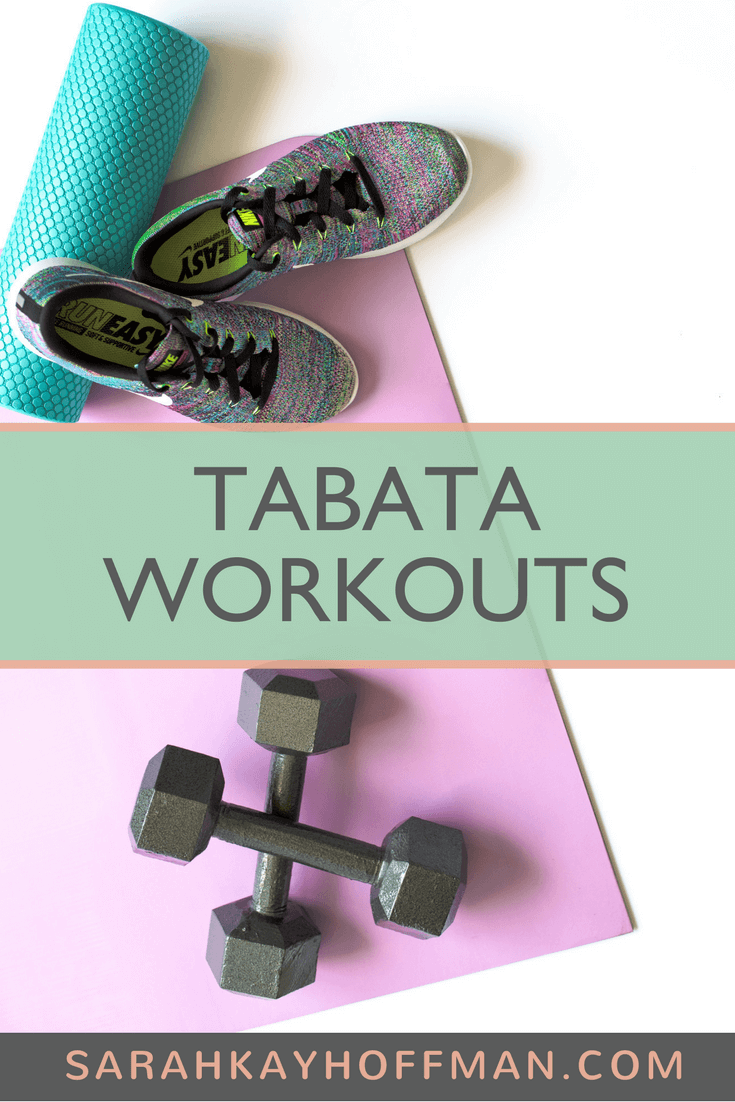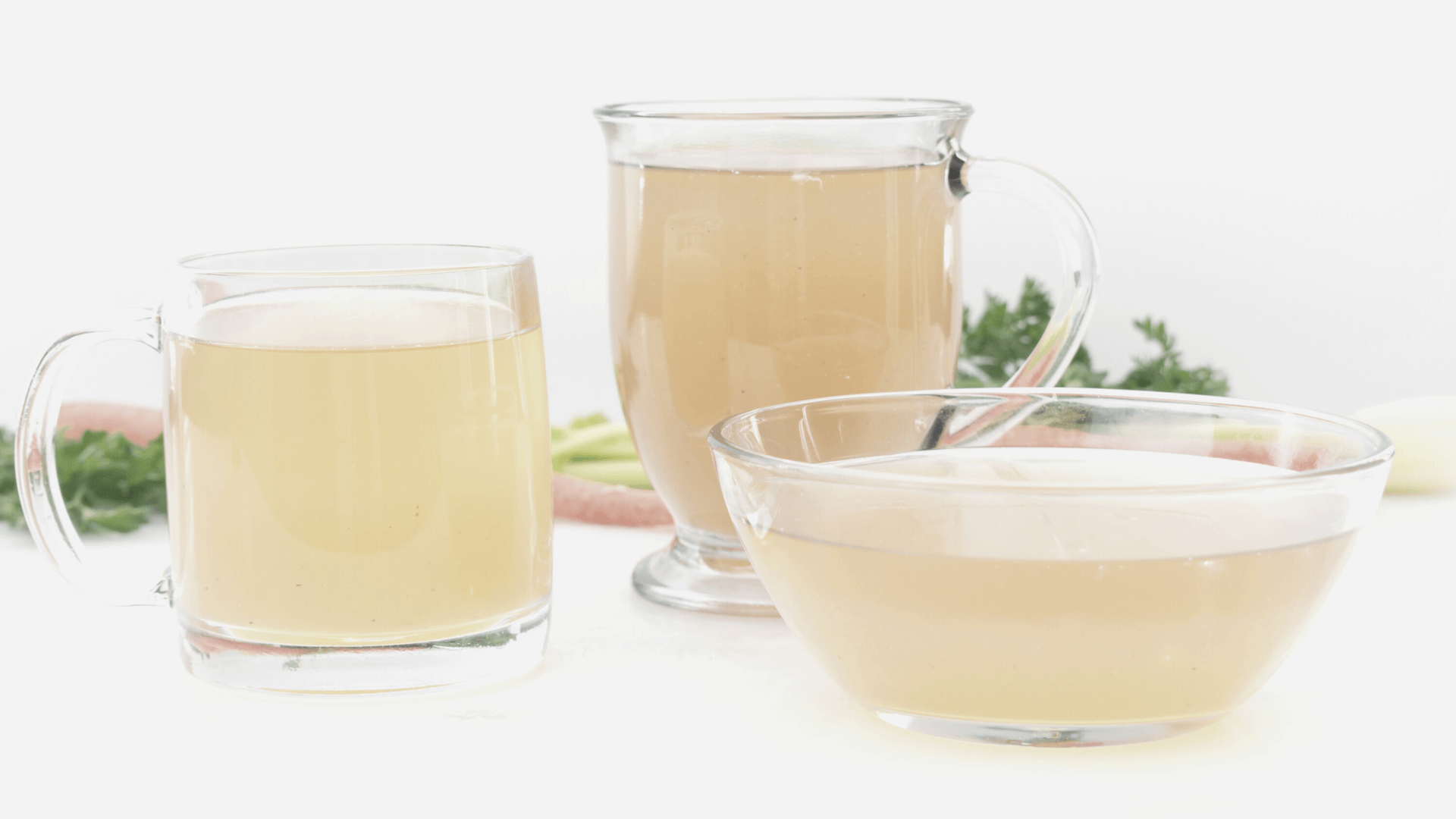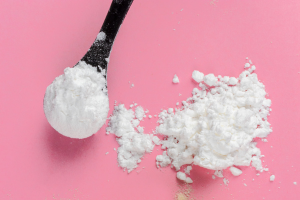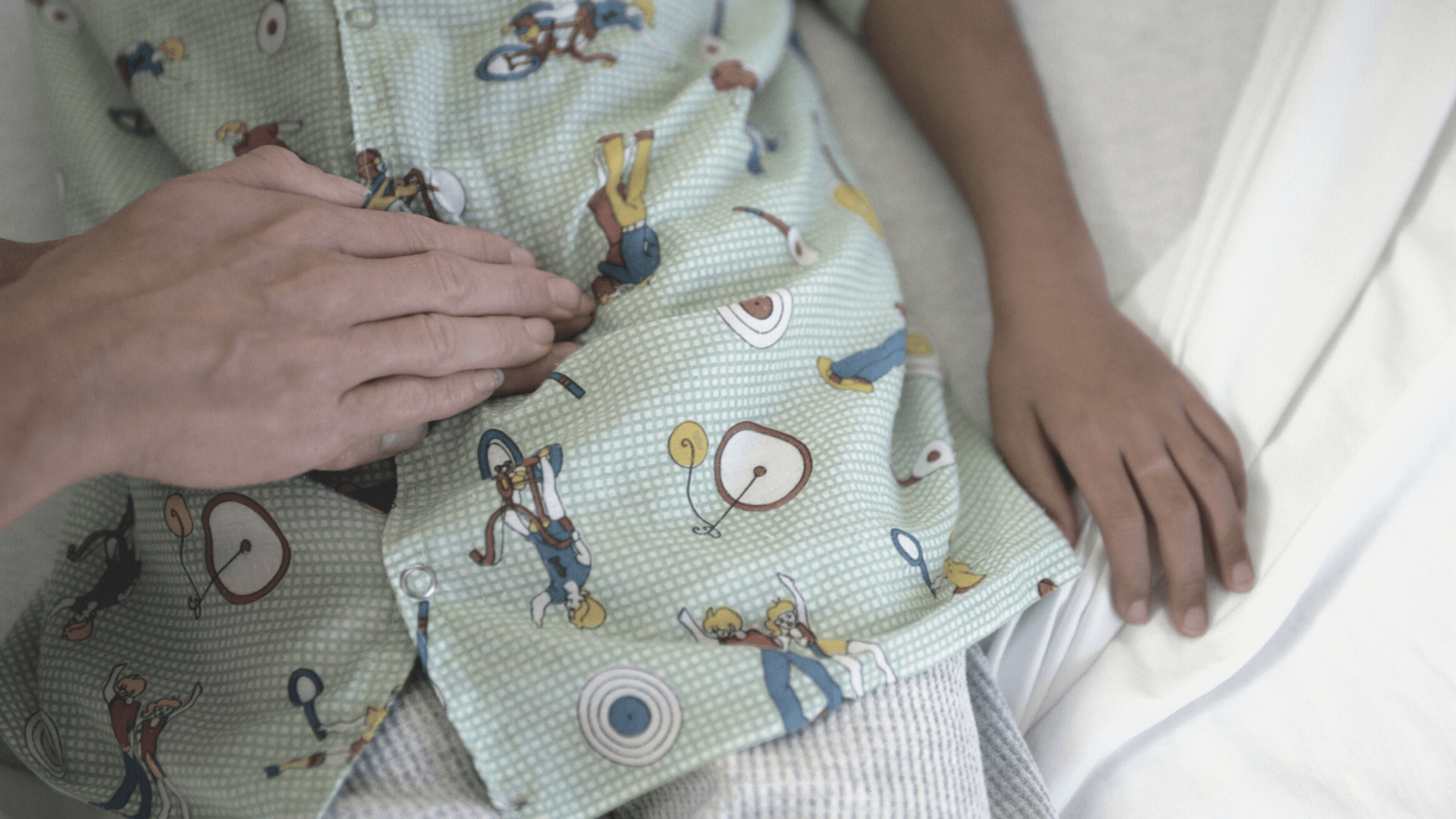Have you ever wondered, “What are the foods that cause bloating during period?”
Today’s guest is someone I am so excited to have on the show, as she truly understands the connection between hormones and gut health.
Subscribe Today:
Apple Podcasts | Spotify | iHeart Radio | RSS
Foods that Cause Bloating During Period {Episode 82: gut health and menstrual cycle}
Click HERE to save this episode on foods that cause bloating during period for later.
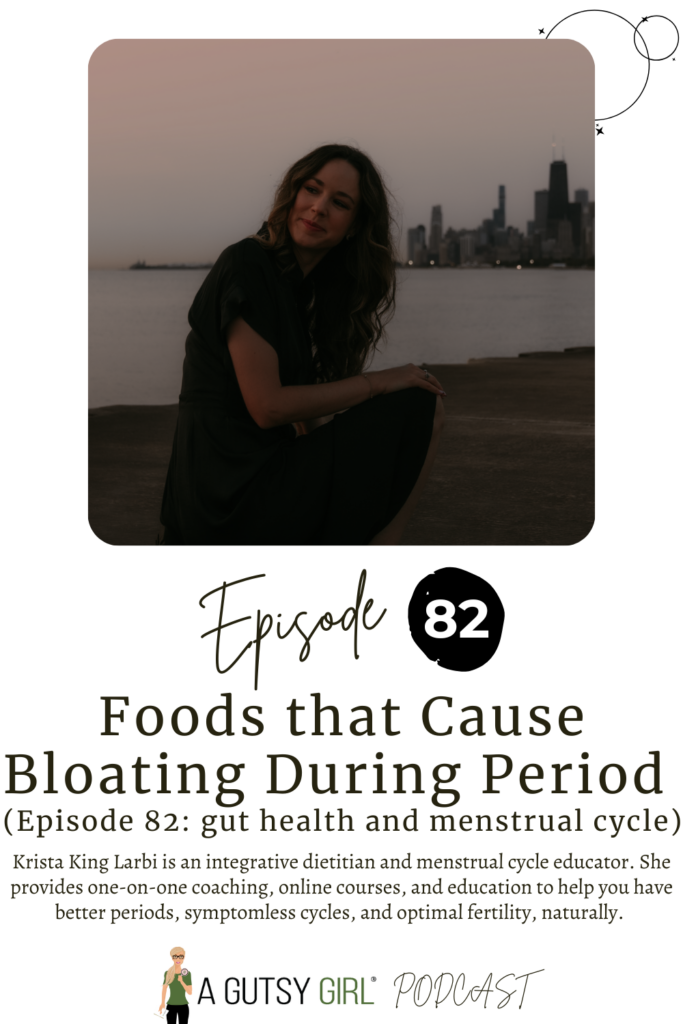
Resources
- Follow Krista on Instagram
- Learn more about what Krista has to offer her website HERE
- Complete List of Gut and Hormone Tests
- All About GI Hormones
- 22 Adaptogens for Hormones
- Top 6 Skin and Hormone Books
- 11 Gut and Hormone Supplements
- A Gutsy Girl’s journal
Don’t Miss These Thoughts
- Who is Krista King?
- How did Krista become so interested in hormones and the menstrual cycle?
- What is a “normal” menstrual cycle? Duration? PMS symptoms? Etc.?
- What’s the deal with gut health and hormones? How are they connected?
- What are the implications on estrogen and progesterone levels when poor gut health is present?
- Does Krista find that “gut healing diets” interfere with the female cycle? If so, how?
- What are some foods that can cause severe bloating during period?
- Are there any lifestyle changes Krista commonly recommends to help with overall gut functioning and health during the various luteal phases?
- Testing recommendations for dually checking hormone and gut function.
- Is there anything else about gut health and hormones Krista wishes more women new?
Hormonal Issues and Doctors
As Krista mentions in the podcast, so many women experience struggles with their periods, infertility, and other painful symptoms that are often disregarded.
Conventional medicine often tells us that extreme issues with bloating, indigestion, and cramping during periods are “normal” and something “all women have to just deal with.”
These symptoms include things such as:
- achy muscles
- excess gas
- abdominal bloating/ uncomfortable bloating
- heavy menstrual bleeding
- breast tenderness
- mood swings
Sometimes these severe symptoms are so bad that they can impact daily activities throughout the month.
The good news is that you do not have to live with these symptoms forever.
With the proper understanding of your cycle and hormone levels, you can learn to live without PMS symptoms and painful periods.
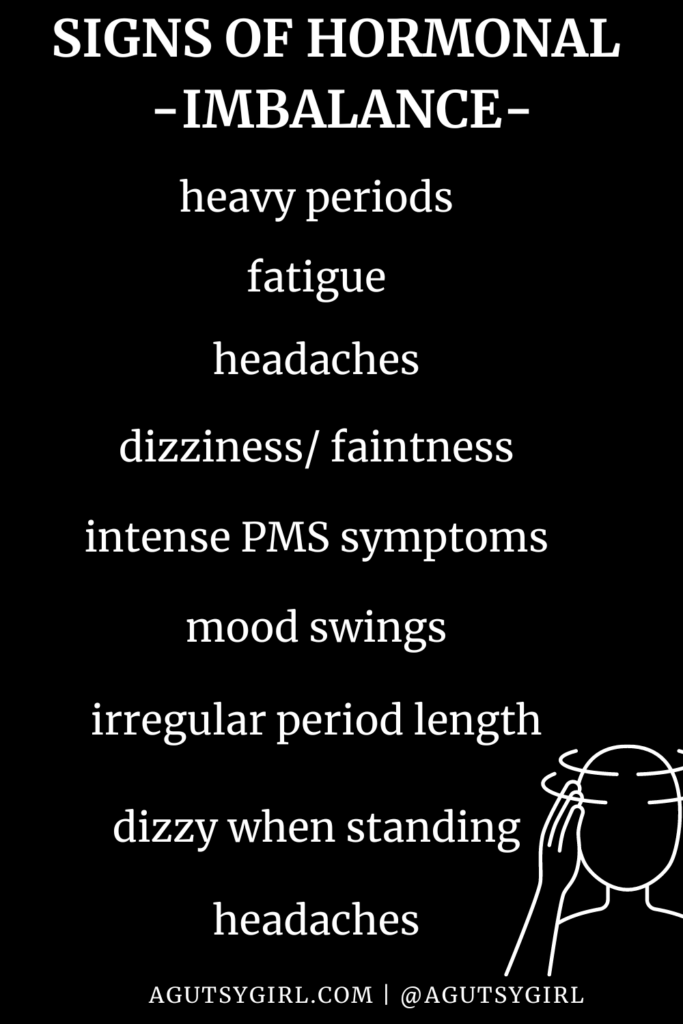
What Does a Healthy Menstrual Cycle Look Like?
Believe it or not but this actually does exist.
A healthy cycle is often 24-35 days long, with the actual “period” part being 3-7 days.
The blood flow should be cranberry red ideally and you should experience MINIMAL symptoms and barely ANY pain.
Yes, you read that right.
A pain-free period is entirely possible and is actually how your body should function.
If you are experiencing symptoms on or before your period, this is your body’s way of communicating with you that something is not right. This often can be due to an imbalance of progesterone and estrogen, which I will go more into depth about in a bit.
What is the Menstrual Cycle?
The menstrual cycle is the full cycle of days that starts on the first day of the period and goes until your next period.
It involves two different cycles that regulate both your uterus and your ovaries (the parts of your body responsible for storing eggs until they are fertilized.)
- ovaries- responsible for storing eggs and releasing sex hormones such as estrogen and progesterone
- uterus- lining holds on to fertilized eggs until development
There are four distinct phases of the menstrual cycle, each which plays a specific part in how the ovaries and uterus are changing.
- Follicular phase- days 1-14
- Ovulation- about day 14 (your mature egg is released)
- Luteal phase- 14 until period
- Menstruation– “your period” or when your uterine lining is shed and you have blood discarded (technically part of the uterine cycle not the ovarian cycle)
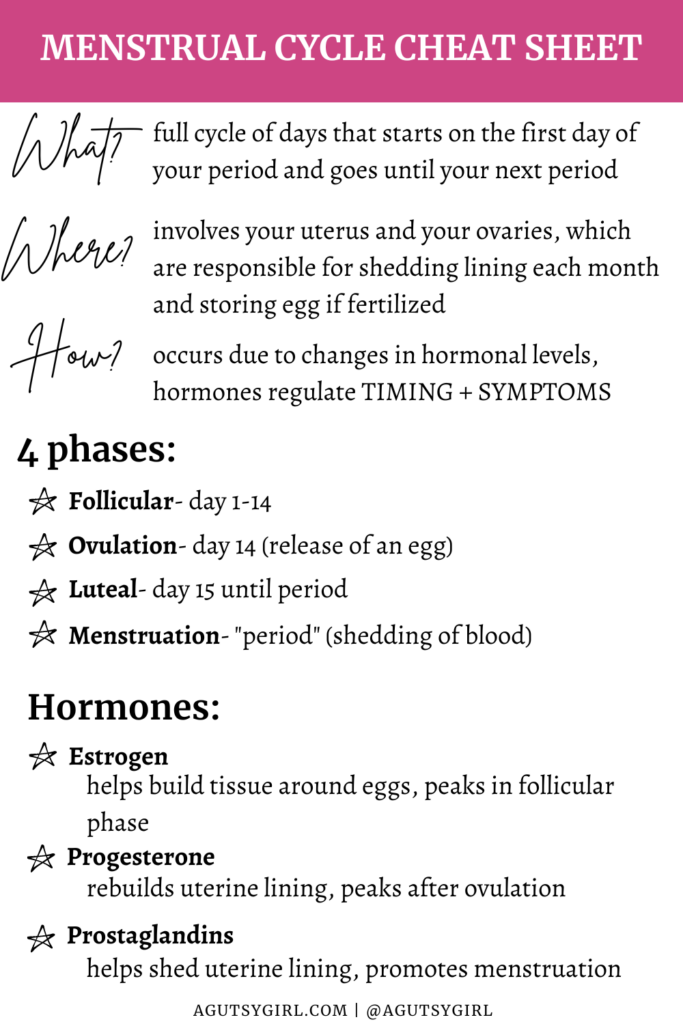
Hormones and the Menstrual Cycle
All of the different period phases are regulated by different hormonal cycles, each which has its own specific part to play in menstruation.
These hormones are created in the ovaries and released at different points in the cycle.
Estrogen
Estrogen is a group of hormones that helps to build tissue around the eggs to protect them as well as encourage the release of an egg during ovulation. It is most high from the follicular phase and then drops after ovulation.
Progesterone
Progesterone rebuilds the uterine lining and peaks after ovulation until the follicular phase.
This hormone has a calming and relaxing effect, which can slow down digestion. This may be why you sometimes have constipation issues after ovulation.
Prostaglandins
These are not technically hormones, but are very similar in function. They are released right before your period to help shed uterine lining. They are inflammatory in nature, so sometimes cause looser stools.
Something Krista talks about that can be a root cause for issues is actually low or high estrogen levels.
This is due to the relationship between progesterone and estrogen, but it can cause differing symptoms throughout different points of your cycle.
Gut Health and Hormones
The gut and hormones have direct impact on one another.
The natural ebb and flow of hormones can cause differences in gut functioning as well as digestive capabilities at different points in the cycle.
As mentioned before, the release of progesterone and prostaglandins can cause differing digestive impacts. High progesterone release may cause constipation, while prostaglandins often cause diarrhea.
These are cyclical changes and can be normal, but sometimes we need a little extra gut support during these times.
In the reverse situation, poor gut health can also lead to an inability to make the proper hormones.
- poor nutrient absorption- decreases ability to make hormones such as estrogen and progesterone
- constipation- estrogen not being discarded, builds up in the body
- pathogens, gut bacteria- cause internal stress on the body and can impact ovulation
- bacteria dysbiosis- interferes with how body metabolizes estrogen
As you can see, different gut issues can cause HUGE issues hormonally across the body.
Hormones and gut health impact one another directly, you truly can not heal one without considering the other.
Blood Sugar
Krista mentions that the foundation for hormonal health is asking yourself these three questions.
- Am I eating enough?
- Am I eating consistently?
- How am I putting my meals together?
By considering these three questions, you can reflect on if your diet and eating patterns are supportive of your hormonal health or not.
Most of the hormonal diet comes down to considering blood sugar levels and how that is supporting your all-around health.
If you are unsure about your blood sugar levels, you can get tested or get an idea based purely on symptoms.
Tests include:
- fasting blood glucose
- hemoglobin A1C
- fasting insulin
And symptoms include:
- low energy throughout the day
- lightheadedness when standing up
- headaches
- periods of dizziness and shakiness
Oftentimes the fasting blood glucose and hemoglobin A1C can be done with traditional blood tests, so ask your healthcare provider if you are presenting with any symptoms.
Your best bet is always to advocate for yourself if you feel like something is off.
Bad PMS Symptoms
If you are someone that struggles with bad PMS symptoms such as abdominal pain and really bad period bloating, consider looking to the digestive tract for some relief.
Oftentimes in the luteal phase (the phase right before the start of your period), your body has a higher rate of water retention as well as salt.
This fluid retention can cause that bad bloat and menstrual cramps that so many of us struggle with.
To combat this, try these strategies:
- be mindful with salt intake (often processed foods contain a lot of salt)
- cook vegetables instead of eating them raw
- add in fruit such as pineapple to meals (contain natural digestive enzymes)
- add in soups and stews (easier on digestive system)
- consider cooking with ginger or drinking ginger tea
- try peppermint tea or capsules (anti-inflammatory properties)
- avoid inflammatory oils
Eating For Your Cycle
One of my favorite things Krista mentioned is actually how to eat in different phases of your cycle.
Of course, this is not meant to be restrictive, but to encourage you to ADD some of these foods in during your cycle.
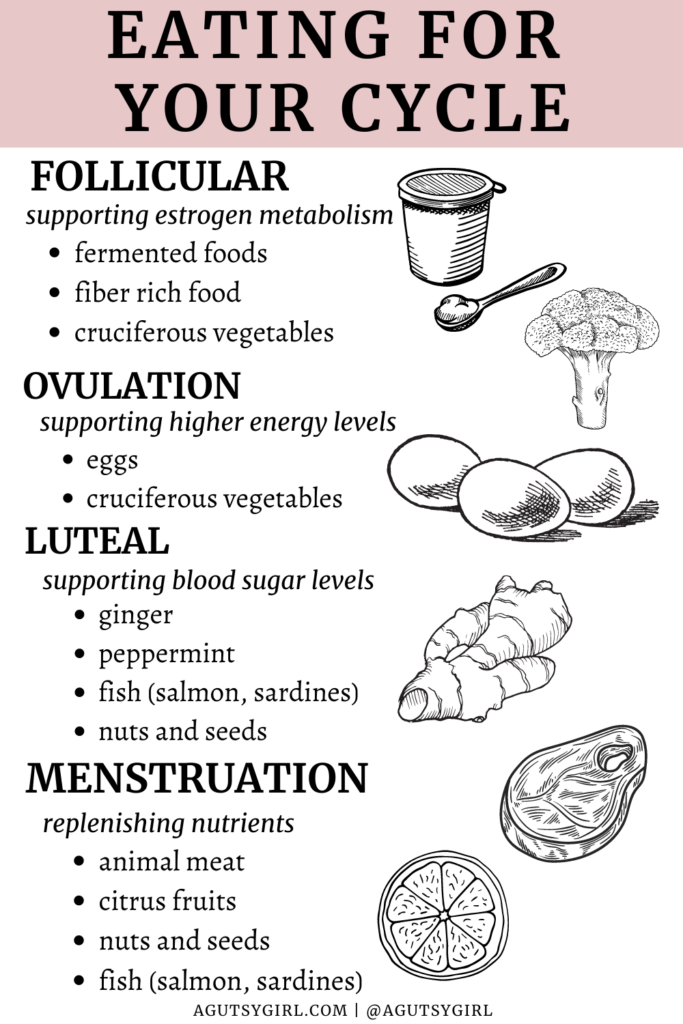
Follicular
Focus: supporting estrogen metabolism
- fermented foods- help with gut estrogen connection
- kefir, kimchi, sauerkraut
- fiber rich foods
- whole grains, nuts, beans, apples
- cruciferous vegetables and green leafy vegetables
- broccoli sprouts, cauliflower, brussels sprouts, argula
Ovulation
Focus: support higher energy levels
- eggs- help provide choline
- cruciferous vegetables
Luteal
Focus: supporting blood sugar, phase where level of insulin is most sensitive
- pair carbs with proteins and fats
- ginger- nausea, digestion
- omega-3
- salmon, sardines, nut butters
- magnesium
- nuts and seeds
Menstruation
Focus: replenishing lost nutrients
- iron, zinc, B12
- animal based meats
- vitamin C
- citrus fruits
- magnesium- helps with cramping and pain
- omega-3- anti-inflammatory
These are all foods that are supportive of particular phases, but of course they can be eaten at any time.
Lifestyle Changes
One of the main strategies Krista recommends for lifestyle changes is to support and honor your body’s energy at different points in the cycle.
This can look different for different aspects of your life.
Exercise
While exercise is key to hormonal regulation, sometimes we need to alter it to fit our body’s needs.
During ovulation, you may be able to engage in high impact regular exercise due to the higher energy levels.
However, when in the menstrual phase, you may need to turn to lighter workouts to support your body’s lower energy levels.
Sleep
Sleep is the last thing you need to be sacrificing at any time of the month.
It helps your body reset and promotes proper detoxification of the body.
It is also a good idea to avoid scrolling on your phone right before bed or when waking up in the morning. One of the best ways to combat this is to leave your phone in the other room at night.
Health relationships and community
This is another area that is critical throughout any point in your cycle.
Those who you surround yourself with should be healing and nurturing and support the natural health of your body.
Testing
Krista uses two main tests in her practice:
1] GI-Map
This is a comprehensive stool test that reveals the overall functioning of your digestive system.
It can also show infections and pathogens that are potentially impacting hormones in the body.
2] Gut Hormone Kit (DUTCH)
This is a urine test that measures progesterone levels, cortisol levels, and how the body is breaking down hormones.
It needs to be completed 5-7 days after ovulation or else the results will be inaccurate.
More from A Gutsy Girl
Want to learn even more about the gut and ways to heal it?
The best way to learn all the secrets is via my signature program, the 21-Day Quick Gut Detox.
- Welcome to A Gutsy Girl Podcast
- Hang out on Instagram
- BFF’s on YouTube
- Resource: The Master Gutsy Spreadsheet
- Rated-G Email Club
Wrap-Up
As always, a huge goal for this show is to connect with even more people. Feel free to send an email to our team at podcast@agutsygirl.com. We want to hear questions, comments, show ideas, etc.
Did you enjoy this episode? Please drop a comment below or leave a review on Apple Podcasts.
Bio: Krista King
Krista King Larbi is an integrative dietitian and menstrual cycle educator. Through her online practice, Composed Nutrition, she provides one-on-one coaching, online courses, and education to help you have better periods, symptomless cycles, and optimal fertility, naturally.
Krista helps you reconnect with your body’s wisdom for long-term symptom relief, without strict diet rules or complicated protocols. She is passionate about helping those who feel dismissed by conventional medicine to find actual answers and solutions to their cycle and fertility struggles.
Her online program, Heal Your Period, is designed to help those struggling with menstrual symptoms and hormonal chaos uncover their root causes and apply individualized healing strategies.
Her goal is to help you feel at home in your body again so you can pursue your dreams and passions without your symptoms getting in your way.
Thank you so much to Krista for joining in on today’s episode and I hope you all enjoy! Remember that you do not have to live with your period cramps forever, there are steps you can take to heal.
If you liked this episode on foods that cause bloating during period, you might also enjoy:
- Dr Vincent Pedre {Gut Health and Hormones}
- Can Acid Reflux Cause Sinus Problems {+ 4 more gut-sinus connections}
- Home Remedies for Diverticulitis {+ Episode 64 with Joanna Fowler}
Xox,
SKH
🤰 bloating be gone! weight loss through optimal gut health for women
💃ʜᴇᴀʟ ʏᴏᴜʀ ɢᴜᴛ. ʜᴇᴀʟ ʏᴏᴜʀ ʟɪfe.
🫶🏻 founder gutbyome.com

![Am I Sick [How to Heal the Gut with No Previous Knowledge]](https://agutsygirl.com/wp-content/uploads/2013/07/bloat-featured-agutsygirl.com-copy.png)
